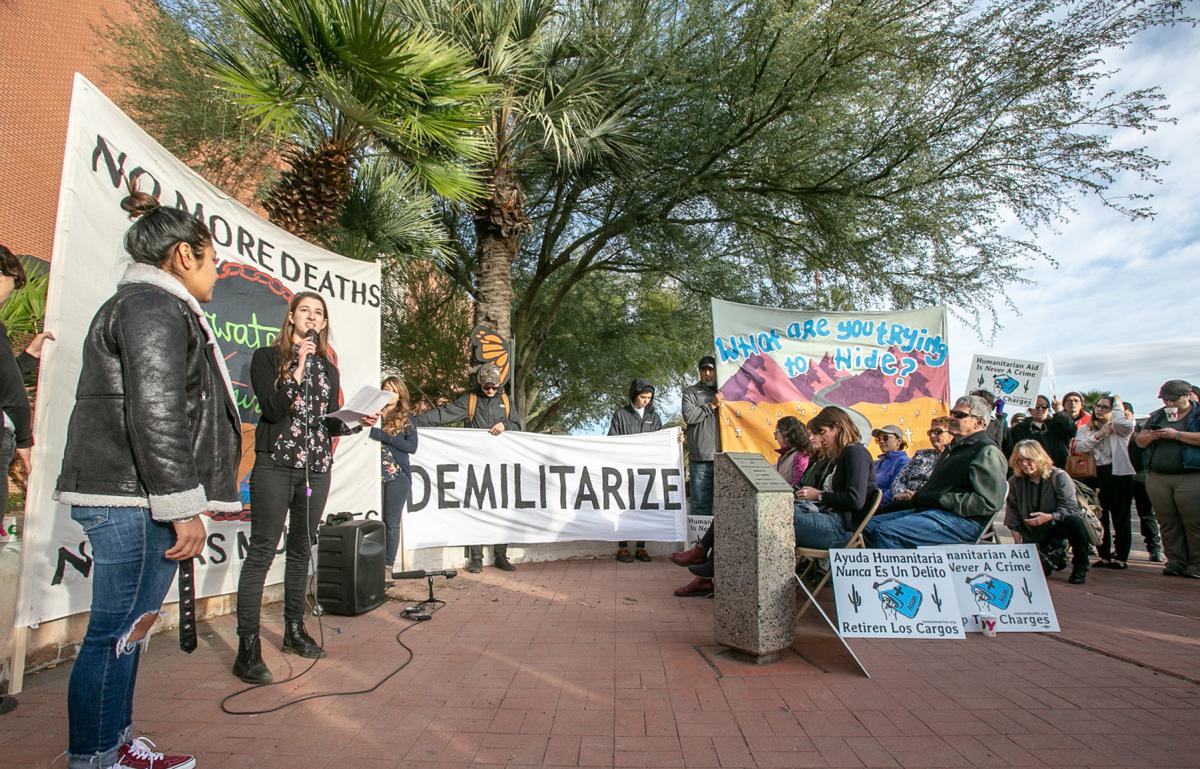The charges may be relatively minor, but the implications of a trial this week could shape humanitarian aid work in Southern Arizona for years to come.
As their trial began Tuesday, four volunteers with the Tucson-based No More Deaths organization argued they took action to stop the deaths of illegal border crossers while politicians are “endlessly debating” policy for the U.S.-Mexico border.
Federal prosecutors said the volunteers broke the law by going where they weren’t supposed to go and leaving items prohibited by the rules of a wildlife refuge southwest of Tucson.
The opening statements on Tuesday marked the start of a series of trials against aid workers, the first criminal charges against such workers in U.S. District Court in Tucson in more than a decade. In separate cases from 2017 and early 2018, federal prosecutors charged five other No More Deaths volunteers with crimes connected to aid work. Those trials are scheduled to start in the coming months.
In this week’s trial, Natalie Hoffman is accused of operating a motor vehicle in a wilderness area. She and Oona Holcomb, Madeline Huse and Zaachila Orozco McCormick are accused of entering a national wildlife refuge without a permit and abandoning property there. All of the charges are misdemeanors.
The Cabeza Prieta National Wildlife Refuge is a desolate area that stretches north from the U.S.-Mexico border where 43 sets of human remains have been recovered since the start of 2017, according to the Pima County Office of the Medical Examiner.
On Tuesday, federal prosecutor Anna Wright presented Magistrate Judge Bernardo P. Velasco with straightforward allegations against the four: They drove a truck on roads they were not authorized to access, illegally left items on the refuge and did not have a permit to enter the refuge.
Michael West, an officer with the U.S. Fish and Wildlife Service, testified he issued citations against the volunteers in August 2017 after encountering them on a road with signage showing it was only for use by government vehicles. They did not have permits and they left 16 crates filled with water jugs and cans of beans next to the dirt-and-gravel road.
Defense attorney Christopher Dupont presented a more complex view of the situation: The aid volunteers are working in a “veritable cemetery, a land of unmarked graves” and haul water and food to remote areas where medical examiner records show undocumented border-crossers have died.
Medical examiner records show nearly 3,000 sets of human remains have been recovered in the wilderness of Southern Arizona since 2001.
Dupont also cast doubt on whether aid workers could have known criminal charges were possible if they violated the refuge’s rules.
“They had every reason to think they would be OK,” Dupont told Velasco.
In the past, aid workers obtained permits to enter the refuge, but the permit rules were changed suddenly in mid-2017 to prohibit leaving the items provided by aid workers, such as food and water, court records show.
The permit application does not mention the possibility of criminal charges in the section that dealt with leaving property on the refuge, Dupont said. In contrast, the section that dealt with the unauthorized flying of drones explicitly states criminal charges could be filed.
Dupont also pointed to remarks from a federal prosecutor in mid-2017 to aid volunteers. The prosecutor said the U.S. Attorney’s Office wasn’t interested in prosecuting offenses related to humanitarian aid, according to Dupont.
The trial is scheduled to continue through Friday.





